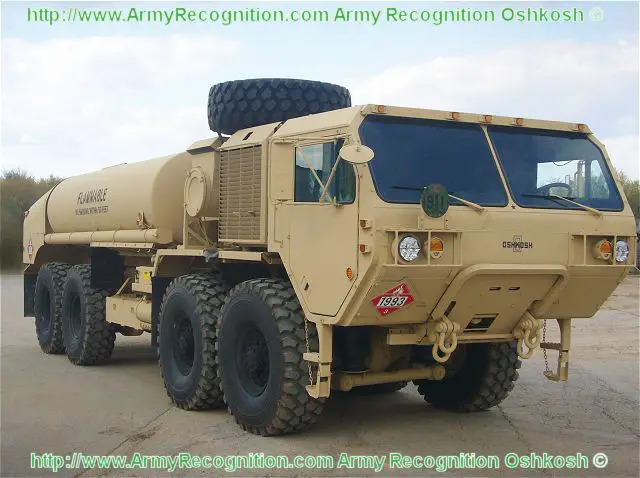Brooklyn-born Amira Talifi, (not her real
name) is a helicopter pilot I served with in the Army National Guard. She is
one of seven children, the only one who is not a doctor, a lawyer or in
finance. She flies a MEDEVAC Blackhawk
helicopter. Her parents wonder where they went wrong.
When her parents came to
America they were determined their children would work hard, go to college and
then law school, medical school or into business. Asian families that come to American, whether
from Beirut, Baghdad, Bangkok or Beijing, are known for pushing their children
toward professional success. Amira followed
the family program until age 20 in 2008 when she enlisted in the New York Army
National Guard as a Chemical Specialist.
She chose that field because the armory she trained in was near her home
in Brooklyn and the career field paid a $20,000 bonus.
During her first two
years in the Guard, she continued to attend college, though she switched her
major from Philosophy to Industrial Organizational Psychology. “I thought it made sense of the Army and how
they do things,” she said. While she
switched her major, she continued with a minor in French. But it was her ability to speak Arabic, which
she spoke at home, that proved much more useful when she deployed to Iraq with
a Military Police unit from Queens, New York.
In 2010, Amira and her Military
Police unit deployed to Iraq. They were attached to the 82nd
Airborne Division.
“When we first got Iraq we were under 82nd
for about three months, then with 3rd Infantry Division,” she
said. The leadership of 3rd
ID “approached my commander about getting females to come with them on their
civil-military engagements. Iraqi females would come in and needed to be
searched.”
“Whether we were the primary searchers or
just supervising the Iraqi police women searching, they needed women,” Amira
said. “Then my commander said, ‘I have
an Arabic girl for you.’ So I ended up going on every single one of those
missions.”
Amira speaks fluent Arabic. “The Iraqi dialect took a while for me to pick
up, but once I did, I was good to go,” she said. “I think I was pretty
useful. I like being actively engaged.”
The desire to be actively engaged led Amira
to switch from security to aviation when she returned from deployment in April
2011. “I like being an expert,” she
said. “That’s what attracted me to being
a pilot.”
The switch from security to aviation became
complicated. “New York had no slots for aviation,” she said. “People were on
like a three to five-year waitlist. In New York, you go to the board. You do
everything that you have to do, then you wait for your flight seat to come up,
and then they give you two weeks notice, or a week’s notice, and you pack your
bags and head down to Fort Rucker (in Alabama) for flight school.”
She went to Pennsylvania
and was accepted for the warrant officer flight program, even before she was officially
a Pennsylvania National Guardsman. “My
full-time job was for the New York National Guard, and I didn’t want to leave
that until I had my flight seat. So, Pennsylvania was nice enough to let me sit
for the board, even though I was not a Pennsylvania National Guardsman. That’s
not something that they normally do,” Amira said. “When they sent me to flight
school, so I switched to Pennsylvania and haven’t looked back since.”
The plan at the time was
to become an NYPD officer after Flight School.
But after flight school, the plan changed. Amira moved to Pennsylvania
to get in her required flight hours without the 100-mile drive each way from
NYC.
“After being in flight school and, just
thinking like long-term, what I want my life to look like, I don’t think I
would be happy as a cop.” She said, “It’s not really my personality type. I
realized I would like to make a career flying. Not necessarily helicopters. I
like flying Blackhawks and doing Army missions, but airplanes interest me also,
and I like the lifestyle of a commercial pilot. It’s nowhere near as fun as
flying a helicopter. It’s just like, I mean helicopters are super exciting. But
I don’t know if I want that excitement all my life.”
She likes the
intermittent schedule of the National Guard—one weekend a month, two weeks in
the summer, maybe a few weeks of school here or there. “It’s an escape from the real world,” she
said. “You go away and it’s like, ‘Oh, I’m a soldier again’.
The reason I’m not active duty is because I like having a separate life
and having my civilian life, my own apartment and all that.”
In the Army the biggest step for an enlisted
soldier is to be promoted to sergeant. Suddenly you are in charge. And the senior leaders, if they are good, do
their best to move you from the culture of “the guys” to the unit leadership.
An even more jarring transition is to become an officer. Your drinking buddies become the soldiers who
salute you. Amira had that transition when her training overlapped with her
former military police unit. They were
training at the base Amira was assigned as a pilot. Her current unit was packing to leave while
her former unit was arriving. She was
now an officer, meeting up with people
she served with in the enlisted ranks.
“I went over to their barracks and saw all my friends,”
she said. “The people that I had been there in the dirt with. I showed them my
uniform. They’re like, ‘Holy shit, Amira, you really did it. You’re really a
pilot.’”
Amira was clear that the move up to the
warrant officer ranks put her at the bottom of a different hierarchy. “I may be a Warrant Officer instead of
Specialist now, but I’m just a junior pilot,” she said. “I graduated flight
school and the learning has just begun, but I know that being a pilot is not
like you just graduate and bam you’re a pilot. It’s a lifetime of learning, but
that’s what I signed up for.”
Five
Years Later
I interviewed Amira several years ago shortly
after she left flight school and was anticipating her first flights as
Blackhawk pilot. In the years since we spoke, she has moved to central
Pennsylvania and is one of the pilots in the MEDEVAC company that is part of
the 28th Combat Aviation Brigade.
Flight crews train on different schedules
than the other soldiers in an aviation unit, so I only spoke infrequently to
Amira in the years since she became a Blackhawk pilot. About three years ago, she went to school and
became a fixed wing pilot. She got a job with a regional airline. She is a pilot in the Army and a pilot in
civilian life.
Her choice is not unusual. Although an
airliner is vastly different than a combat helicopter, a lot of the skills are
the same. Many men and women who fly in the military have aviation jobs in
civilian life. In fact, one of the Army air traffic controllers who guide
pilots in the 28th is a regional airline pilot in civilian life.
Amira also has a quirky presence on Facebook
unlike any other Army pilot I have followed.
Her page is jokes and comments about life in general and life as a pilot
in particular.
Her sunny face on Facebook and her radiant
smile on the flight line cover serious thinking and choices on her part. She
started college as a philosophy major.
Though she switched to a business major, she speaks with passion and
insight about classical and contemporary philosophers and about all the choices
that add up to a direction in life. Amira is a Muslim woman in the U.S. Army, a
combat veteran of Iraq, and a MEDEVAC pilot who could be called to serve in a
war at any moment.
While I was still serving with the 28th
I wanted to write about Amira for an Army publication, but she gently refused.
It would have been fun for me to write about her, but she lives in a culture
that profoundly hates the media. Soldiers, from Generals to enlistees are
mostly suspicious of the all media, even their own media. So even if I wrote about Amira for an Army
publication the soldiers she served with would be negative about her simply
consenting to an interview.
Amira is just over five feet tall with long
black hair nearly to her waist that she ties up under her helmet to fly. She
often flashes a bright smile, has a wicked sense of humor and is both an
airline pilot and a MEDEVAC Blackhawk helicopter pilot, wearing a uniform for
both jobs. Did I mention she is funny?
Some of the funniest things she says are
about dealing with men, both in an out of the Army. Recently she posted this on Facebook:
How to get men to stop talking to you:
I
never flew in her aircraft as a civilian or in the Army. MEDEVAC helicopters
don’t carry passengers. But I would be happy to fly with Amira at the controls
of any aircraft. And it is interesting
to see through social media how she navigates life in 21st Century
America.
-->

















